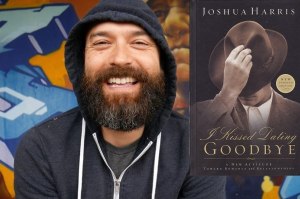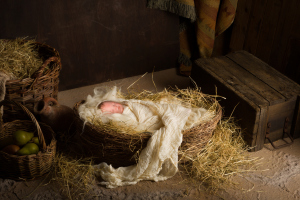Christians Rediscover Liturgies for Evangelism
Todd Hunter has stumbled upon something he believes is bringing former Christians back to church and has the potential to draw the unchurched.
Liturgy.
Though liturgies have existed for hundreds of years, Hunter believes churches can employ those traditions for the present mission field.
"I feel like I'm 20 years late to Robert Webber's party," he said at the National Outreach Convention last week in San Diego, Calif. Webber, who dubbed the term "ancient future worship," had called churches to blend contemporary worship styles with the liturgical practices of the early church.
Hunter, who is currently a bishop in the Anglican Mission In the Americas, had recently come across friends who found their Christian faith being restored through liturgies.
"I genuinely stumbled into this," said the Anglican bishop who had grown up in the United Methodist Church.
Two dechurched friends told Hunter they had never kneeled before in their life as a believer and found that kneeling was rewiring their souls. Another friend said reciting creeds is making his faith come alive.
And when he met with a young adult who frequents parties and with whom he is well acquainted with, he received a vision that if she and others around her age just prayed the Prayer of Confession week after week, it would rewire their moral thinking.
When he was involved in the emerging church movement, Hunter found that there was a fascination among postmoderns with the past. Now a part of the Anglican Communion, he's discovering that liturgy can be used as a tool for evangelism.
"My sense is that there is a momentum, a hunger and that we're sort of tapping into it, I think," Hunter explained to The Christian Post. "I think we might be synergistically working with it (momentum)."
Hunter discovered the value of the "liturgical treasure chest" in the Anglican tradition after he was ordained in March and then consecrated as bishop in September. Formerly linked to the United Methodist Church, the seeker movement, the emerging church and the Vineyard Churches, Hunter had not planned on journeying into Anglicanism.
Though planning for retirement, he was asked by Bishop Chuck Murphy of Anglican Mission In the Americas to lead a new initiative – called Churches for the Sake of Others – of planting 200 missional churches primarily on the West Coast, where younger adults and Americans are much less likely to believe in God, in 20 years. The churches would be aimed at drawing the unchurched and the dechurched of an increasingly postmodern and post-Christian generation.
And the churches' practices would be "ancient tradition inspiring future followers of Jesus for the sake of others."
How it looks in action
At Holy Trinity Church, which was set up just over a month ago in Orange County, Calif., Hunter wears a stole and leads the congregation in the reading of the Word, reciting the Nicene Creed, saying the Prayers of the People, and the Eucharist. But before administering the practices, he tries to explain the significance of each and in a language that the dechurched and unchurched could understand.
When he first put on the traditional vestments, he explained to the congregation that it was a stole and that Jesus set the example by putting a towel around him and washing the disciples' feet. The stole was thus symbolic of him as a servant and the church as a community taking up the towel of Jesus. Hunter discovered that a simple explanation like that blew people away.
"People think I'm a genius," Hunter said.
He also teaches why the congregation says "amen" and why they pass the peace, among other liturgical practices.
Acknowledging that some people may just "go through the motions" in church, Hunter stressed that engaging the practice begrudgingly is not liturgy. Liturgy, rather, is the work or action of the people.
"Here's the magic about liturgy. What I'm supposing as part of the magic is participation," he said.
While many churches have created a culture where worshippers sit, relax and wait for something to happen to them, with liturgy, worshippers are impelled to be active, he noted.
"[A]nybody today who wants to be a seeker and follow God in the way of Jesus is going to want a religion to practice," he told Christianity Today magazine. "I'm wondering if Anglicanism and other streams grounded in spiritual practices aren't going to be used by God in a way they have not been used since frontier America and Wesley."
As evidenced by his diverse Christian journey, Hunter says he's trying to keep his focus on the Kingdom of God. Denomination is secondary, he says. So even as he plants churches under an Anglican umbrella, he clarified that he is not building churches from the Anglican tradition out.
"We're going to engineer these churches backwards from missional and pastoral concerns. They will be Anglican in theology and Anglican in polity, but they may not look Anglican."
Hunter is an adjunct professor of evangelism and postmodern ministry at George Fox University, Fuller Seminary, Western Seminary and Wheaton College. He formerly served as president of Alpha USA.




























